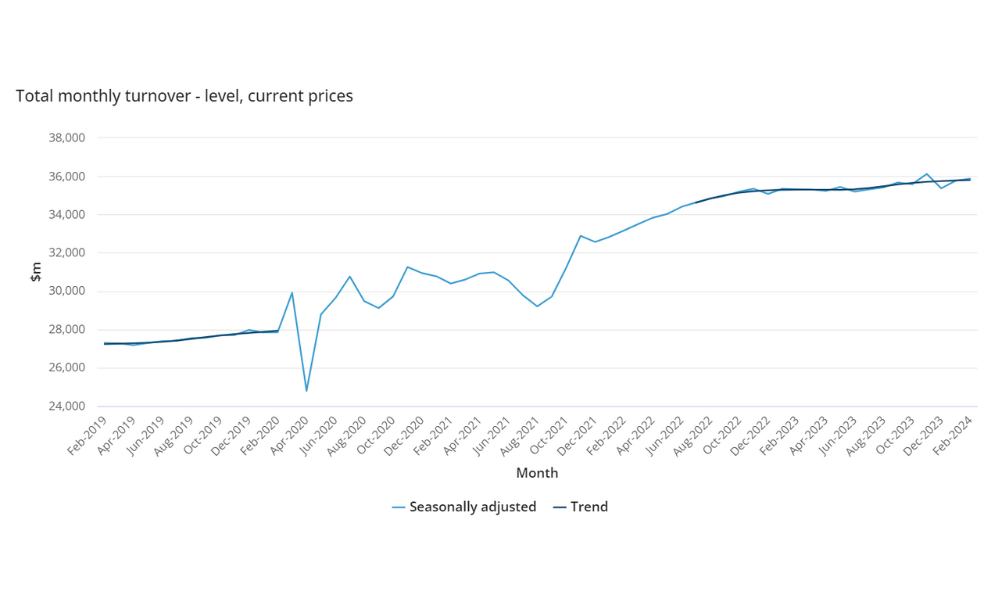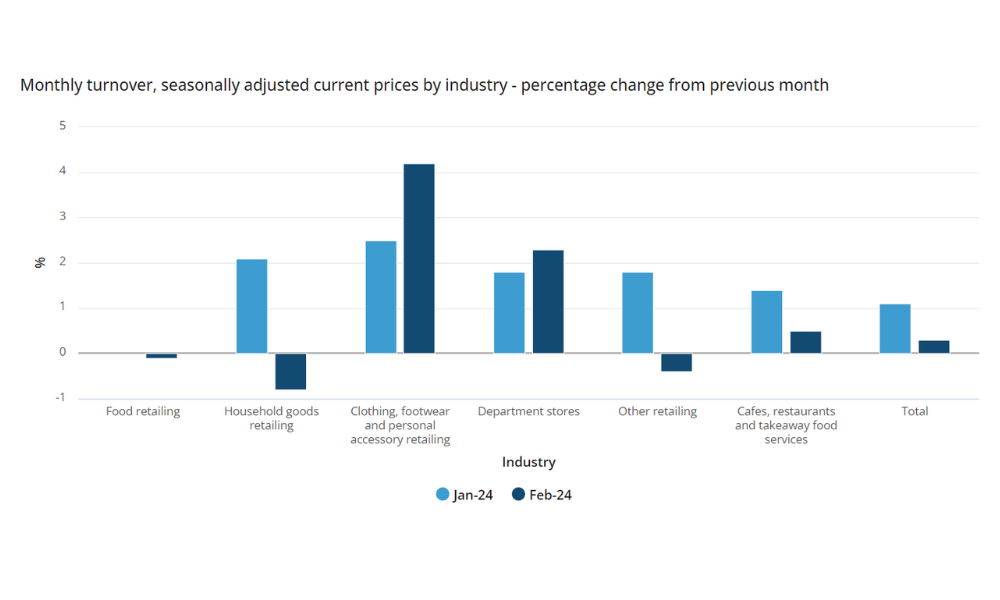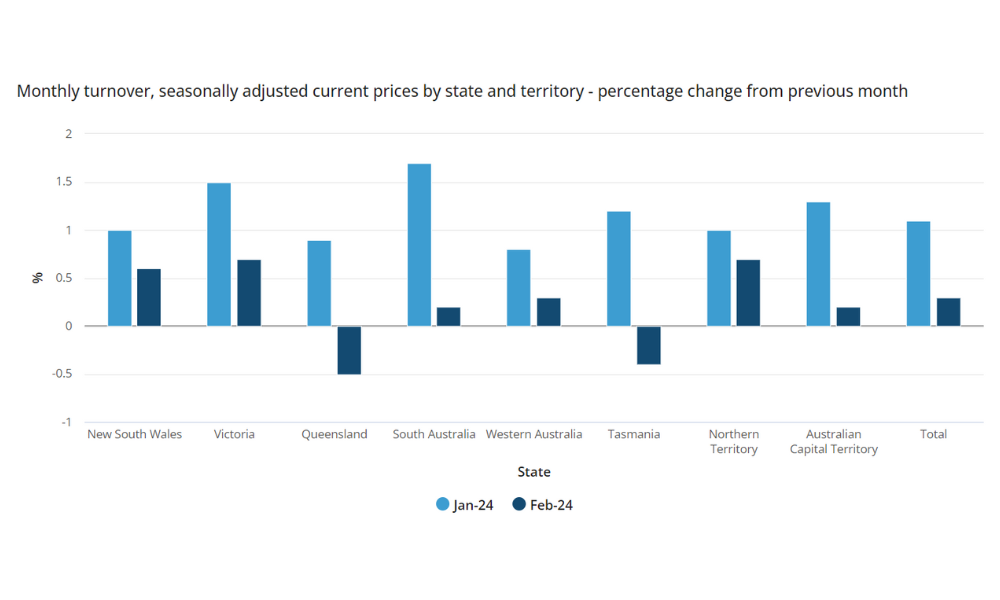

Australian retail sales experienced a modest increase in February, with a seasonally adjusted rise of 0.3%, following a significant boost from Taylor Swift’s sold-out concerts in Sydney and Melbourne, according to fresh figures from ABS.
The increase comes after a 1.1% increase in January 2024 and a 2.1% decrease in December.
ABS reported that more than 600,000 fans attended the pop star’s concerts, driving up purchases in clothing, merchandise, accessories, and dining out.
“Seven sold-out Taylor Swift concerts in Sydney and Melbourne boosted retail spending this month,” said Ben Dorber (pictured above), head of retail statistics at ABS, in a media release.
The surge in spending contributed to the overall growth in retail sales, despite a modest underlying growth trend.
See LinkedIn post here.
Despite the excitement around the concerts, Dorber pointed out the broader context.
“Looking past the temporary and one-off impact of the Taylor Swift concerts, underlying growth in retail turnover was up only 0.1% in trend terms,” he said.
This suggests that aside from specific events driving temporary spikes, the general retail environment remains relatively stagnant in terms of growth.

Specific sectors saw notable increases, with clothing, footwear, and personal accessory retailing rising by 4.2%, and department stores by 2.3%.
The influence of the Taylor Swift concerts extended to cafes, restaurants, and takeaway food services, which saw a 0.5% rise.
“Fashion and accessory retailers told us offerings of Taylor Swift-inspired outfits and related do-it-yourself accessories added to turnover in February,” Dorber said.

ABS also outlined a decrease in turnover in sectors like household goods retailing (-0.8%), other retailing (-0.4%), and food retailing (-0.1%), indicating weaker underlying retail spending.
Geographically, retail turnover rose in most jurisdictions, with Victoria (0.7%) and New South Wales (0.6%) experiencing significant increases, attributed to the influx of visitors and local concert goers’ spending. In contrast, Queensland (-.0.5%) recorded the largest fall.

More details are available here: Retail Trade, Australia, February 2024. To compare with the previous month’s, read this article.
Get the hottest and freshest mortgage news delivered right into your inbox. Subscribe now to our FREE daily newsletter.
